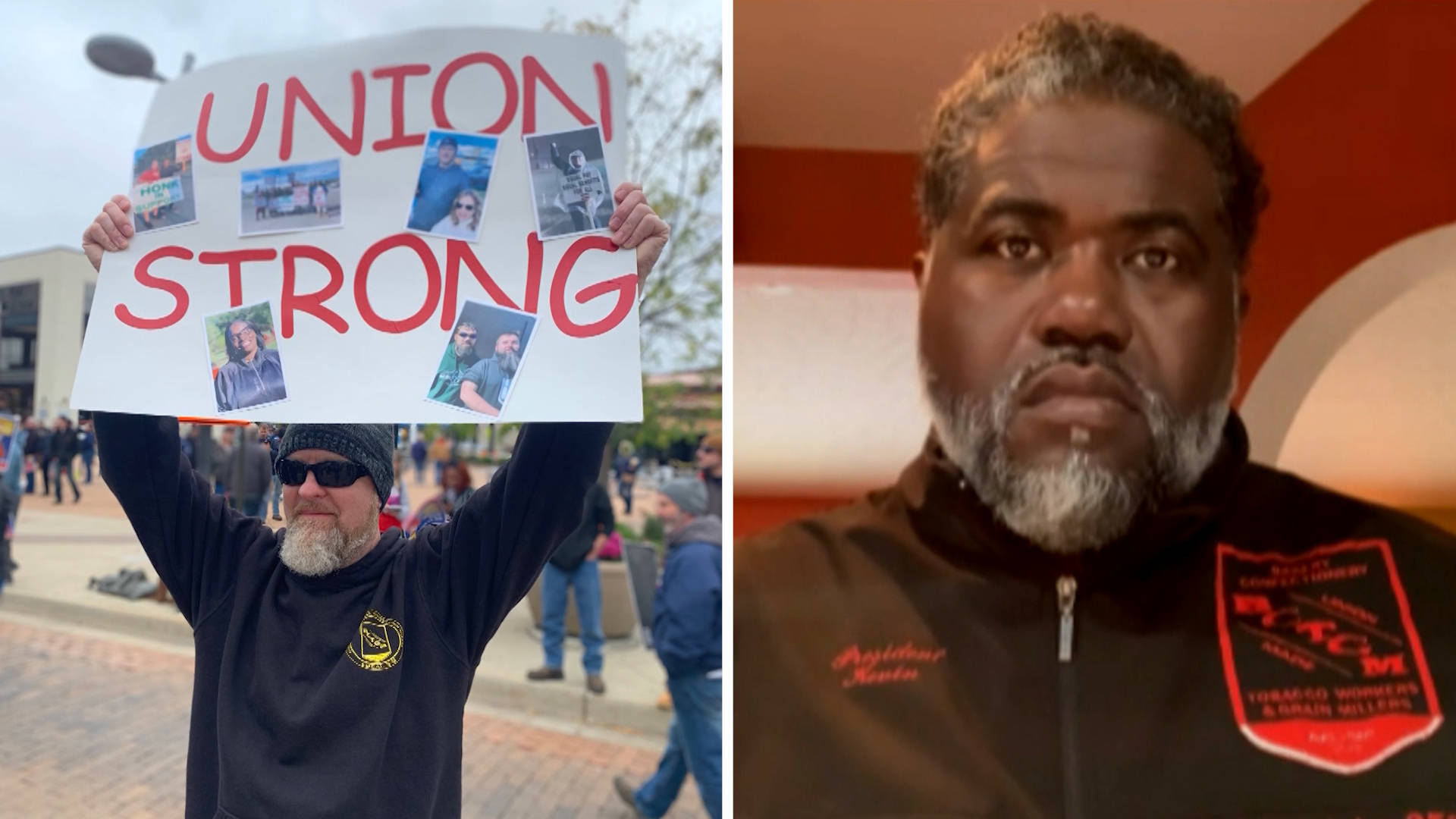
This is a rush transcript. Copy may not be in its final form.
AMY GOODMAN: This is Democracy Now!, democracynow.org, The War and Peace Report. I’m Amy Goodman.
In a major victory for labor rights, workers at Kellogg’s cereal plants have ended their nearly three-month strike after approving a new contract that provides across-the-board wage increases and enhanced benefits for all. Some 1,400 Kellogg’s workers in Michigan, Nebraska, Pennsylvania and Tennessee have been on strike since October. Over the weekend, Senator Bernie Sanders joined striking Kellogg’s workers in Michigan.
SEN. BERNIE SANDERS: In the middle of a pandemic, legitimately, you are heroes and heroines, right? You were feeding America. And it is just outrageous to me that the company responds to your sacrifices by saying, you know, “We’re taking your jobs to Mexico. We’re going to have younger workers coming in at lower wages and benefits,” while they give their CEO $12 million a year, I guess.
AMY GOODMAN: One of the most contested issues has been a permanent two-tier system, where workers at Kellogg’s hired after 2015 were paid less than longer-tenured workers. The new five-year agreement with Kellogg’s doesn’t include the two-tier system, gives workers a clear path to full-time employment and provides a significant increase in the pension multiplier.
We’re joined now by Kevin Bradshaw, president of Local 252G of the Bakery and Confectionery Workers International Union of America. He’s in Memphis, Tennessee, a striking Kellogg’s worker who’s worked for the company for 20 years.
Kevin, welcome back to Democracy Now! Can you talk exactly about what you won?
KEVIN BRADSHAW: Yeah. Thank you for having me.
What we we won was fighting against the alternative work schedule, what the company wanted to introduce. And they wanted to introduce a permanent two-tier wage system. So, we were able to get those things taken off the table, along with some different additional things, like an increase to our cost-of-living allowances for everyone and also for our pension plan. We got a significant increase to our pension plan. So, there was a lot of good things. We didn’t have any takeaways and no concessions, so I would say that, in essence, that we did win.
AMY GOODMAN: Have you already returned to the plant to work?
KEVIN BRADSHAW: No, we return Monday, on December 27th.
AMY GOODMAN: Can you talk about who works at these plants around the country? You’re in Memphis. The demography of the racial breakdown of the workers?
KEVIN BRADSHAW: Well, I would say in Memphis is probably our most predominantly Black plant. The other plants are a little bit more diverse, in Omaha and in Lancaster and Battle Creek. But Memphis is a predominantly Black plant, and always has been.
AMY GOODMAN: And talk about what you produce. What does Kellogg’s make?
KEVIN BRADSHAW: Oh, wow. In Memphis, we make Frosted Flakes, Corn Flakes, Apple Jacks, Froot Loops, Rice Krispies, I mean, different flavors of Rice Krispies. We also make the rice that actually they use to make the Rice Krispie Treats. In other plants, we make all the different other specialty brands. We make Special K, Chex — I mean, not — Shredded Wheat, stuff like that. I mean, it’s so much cereal. I mean, everything that Kellogg’s makes, we make. We feed America.
AMY GOODMAN: And can you talk — I mean, this strike was almost three months. How did the workers get by on the picket line?
KEVIN BRADSHAW: Well, a lot of our workers, we had to acquire other jobs to be able to maintain. And it was a very stressful time of adversity and heartbreak and financial hardships, medical needs. I mean, we made it throughout the different accounts we set up with GoFundMe and stuff like that. We made it from different — all of our different unions across the world, our national AFL–CIO, who’s involved and who helped all our different affiliates across the world, our international staff, President Anthony Shelton and his staff. I mean, we were able to network and reach out all across the world to help maintain. And our international provided weekly funds for everyone, so, you know — which were very appreciated. So we maintained just by networking and coming together, unions all over the world.
AMY GOODMAN: And can you talk about the conditions in the plant, especially in this time of the pandemic?
KEVIN BRADSHAW: Our conditions now or conditions when we go back? Those are — we remain to be seen, when we go back. Right now, you know, we know that some of the plants are probably in bad shape with the replacement workers that they have. We know that things have been broken and stolen and just tore up. So, we’ve got to go back in and rebuild our plants to get them back up to running to be able to feed America.
AMY GOODMAN: And finally, on the two-tiered system, explain more fully the significance of what it means to — have you done away with it entirely?
KEVIN BRADSHAW: Well, what the company was actually asking for was a permanent two-tiered system, where when a new person comes in, they will have no chance to be able to top out at maximum pay. So what we were able to come away with was a guaranteed process that would allow them to graduate. Every year, 3% of the total population at that plant would graduate to what we call a regular legacy full-time employee to receive the same benefits and pension and insurance as myself, as I have. So, it’s a win for us, because there’s no — there is a clear path to be able to get top pay, which the company was not willing to give us to begin with.
AMY GOODMAN: Kevin Bradshaw, we want to thank you so much for being with us, president of Local 252G in Memphis, Tennessee, striking Kellogg’s worker who’s worked for the company for 20 years. They’re going back to work on Monday.







